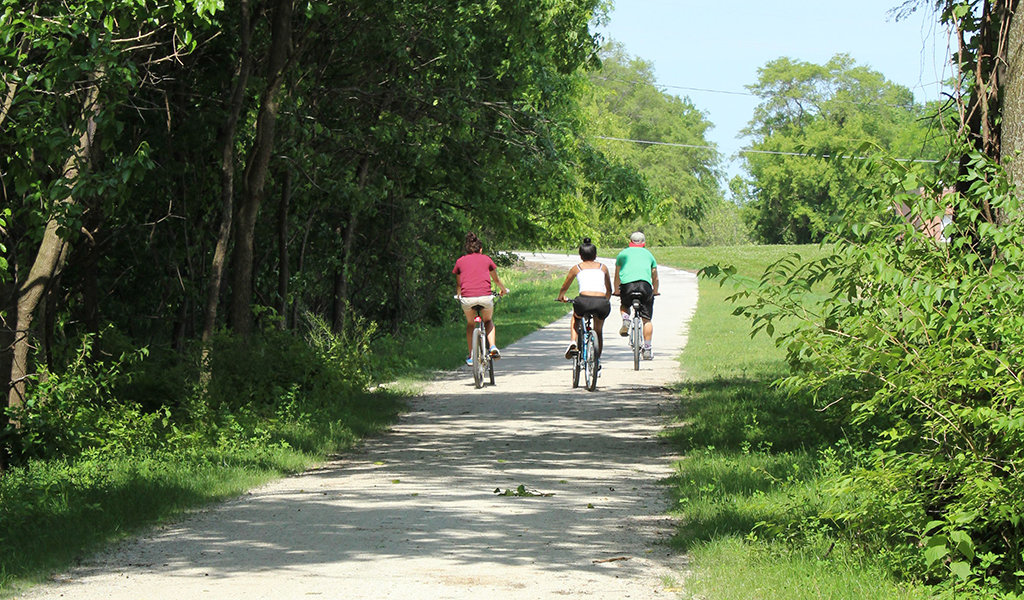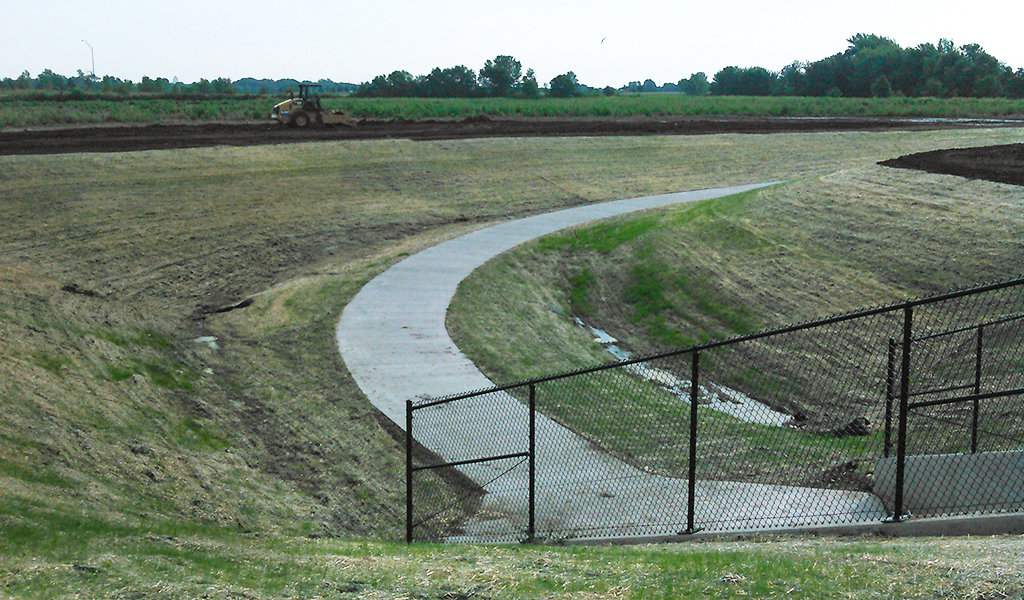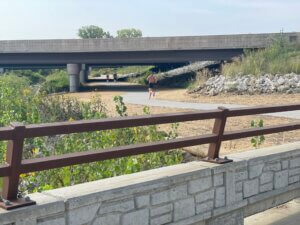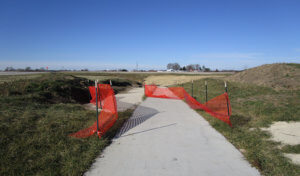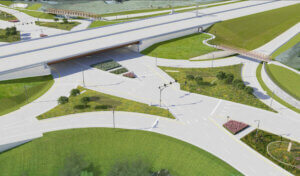
Trail Growth & Realignment Keeps Popular Network Active
Iowa’s vast trail network is constantly evolving and expanding to meet the changing needs of trail users and commercial development efforts. Originating in the southwest corner of Des Moines, the Great Western Trail is a prime example of this evolution. First opened in 1992, this popular trail system has undergone several expansion and realignment projects over the years that have kept it updated and available for recreational use. The planners and engineers with Snyder & Associates have been active in many of these improvements, partnering with both public and private entities in the process.
Expansion Project Ties Trail to Local Network
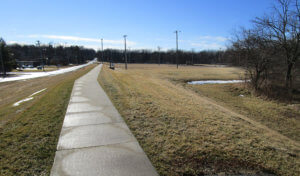
This before image shows the Bill Riley Trail location where the Great Western Trail extension will connect.
Beginning on the southern edge of Water Works Park near downtown Des Moines, the Great Western Trail meanders through both urban and rural landscapes as it winds its way south to the community of Martensdale. This nearly 19-mile-long route, however, was lacking a critical connection to the Des Moines local trail network. Our team worked with multiple organizations to create a trail link that filled this gap.
In consultation with Polk County Conservation and the City of Des Moines, our team designed a one-mile-long, hard-packed, gravel trail extension to connect the paved portion of the Great Western Trail to the Bill Riley Trail to the east. Running parallel to George Flagg Parkway to Southwest 30th Street, this trail section mainly follows a former railroad right-of-way through a heavily wooded area.
The chosen route for the trail required a modification to a levee. Working in conjunction with the U.S. Army Corps of Engineers (USACE), our project team applied for the necessary levee modification — a Section 408 review request — through the City of Des Moines. This included the development of a Flood Contingency Plan and detailed drawings of the levee modifications.
Since the trail is owned and managed by Polk County Conservation, but a portion of the property is owned by the City of Des Moines, a 28E agreement was also necessary between the two entities to govern the roles and responsibilities regarding the trail construction and future maintenance. Our team coordinated with both jurisdictions to establish this agreement.
During the construction phase of the trail extension project, our team reviewed shop drawings, tracked quantities, provided weekly progress reports, submitted partial payment applications, and processed necessary change orders. We also ensured the trail was built in compliance with the plans, specifications, and recommended acceptance upon completion.
Trail Realignment Creates Opening for Commercial Development
Establishing trail alignments in coordination with private development efforts also requires careful planning and frequent reevaluations. When Knapp Properties was focused on developing a privately-owned parcel of land to the south of the Highway 5 bypass, an at-grade trail crossing was proposed to provide access to the new development. Our team was called upon to recommend a trail realignment alternative that avoided crossing the trail, while also providing the developer with complete access to their property.
Our designers proposed moving a 1,600-foot-long-existing section of the Great Western Trail to the west to run adjacent to the existing Highway 5 on-ramp and Veteran’s Parkway. This proposed realignment also replaced a deteriorating section of the trail that was going to need replacement in the future. This necessary realignment provided a solution that kept trail users safe and allowed the developer to quickly move forward with their plan.
Trail Reconstruction Benefits from CARES Act Funding
Our planning and design work also focuses on reconstruction efforts that keep trail systems operating smoothly. Because several sections of the Great Western Trail are over 20 years old, deterioration levels had led to people not using parts of the trail where it winds through Warren County. Fortunately, the Coronavirus Aid, Relief, and Economic Security Act, also known as the CARES Act, included a provision to provide funding for the State Recreational Trail program in Iowa.
With funds available for repairs, renovations, and some expansion, our team partnered with Warren County Conservation to determine those areas most in need of repaving. Our team is helping county leaders stretch their share of the funding to make as many repairs as possible. This project, currently underway, could ultimately result in the reconstruction of several miles of trail in the area south of Cumming.
As societal and commercial needs continue to change around us, trail expansions and realignments are sure to follow suit. These unique challenges inspire our designers, planners, and engineers — energizing them to develop creative solutions that help keep active trail networks moving forward.
